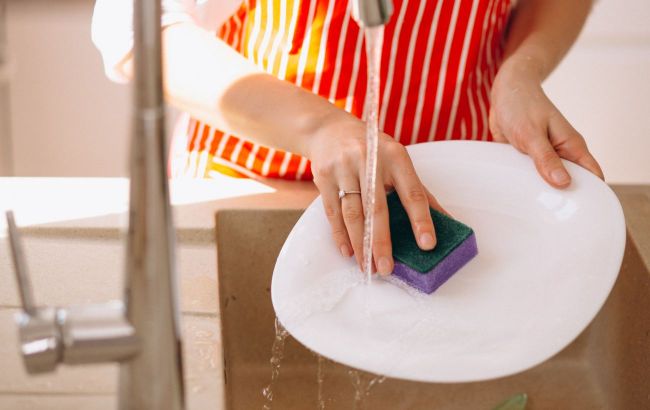5 mistakes in kitchen cleaning
 What not to do when cleaning the kitchen (illustrative photo: Freepik)
What not to do when cleaning the kitchen (illustrative photo: Freepik)
Even if you clean your kitchen thoroughly every week and wash the dishes immediately after each meal, the kitchen may not be as clean as you think. After all, sometimes cleaning methods can do more harm than good, according to Real Simple.
Using bleach
Although many people use bleach to disinfect kitchens, cleaning experts say that using bleach can be risky.
Accidental splashes can damage clothing, and the fumes are harmful to both people and pets. For cleaning countertops, it is recommended to avoid bleach and use a non-aggressive all-purpose cleaner instead.
Using multiple cleaning products
A quality multi-purpose cleaner can replace all those bottles under the sink and help you save some money.
The reality is that having a cleaner for sinks, glass, and stainless steel can be excessive, and one cleaner should be able to handle most of the cleaning tasks.
However, even if you have several cleaning products, it is crucial not to mix them or apply them simultaneously to a surface - this can cause a chemical reaction, create dangerous fumes, or at least alter the effectiveness of the cleaner.
Wiping the cleaner off quickly
When it comes to cleaning countertops and other surfaces, it seems sufficient to just spray the cleaner and wipe it off. However, this is incorrect.
The cleaner needs time to work, so patience is required.
You shouldn’t wait until the liquid dries. It’s best to follow the instructions on the label.
Not replacing the cleaning sponge
A kitchen sponge is a prime breeding ground for bacteria. To prevent this, it is recommended to disinfect sponges daily and replace them every 2-3 weeks.
For cleaning, microfiber cloths are recommended because sponges tend to break down quickly from chemical cleaners.
Also, to scrub dirty plates, pots, and pans, you can use a dish brush instead of a sponge, as it is easier to disinfect.
Forgetting to wash the trash can
If you’ve cleaned everything but there is still an unpleasant smell in the kitchen, it’s time to check the trash can.
Experts note that it is important to occasionally wash the trash bin, as bacteria grow in the liquid from food, causing unpleasant odors.
You can clean the container with either dish soap or an all-purpose cleaner. In any case, make sure the trash can is dry before replacing the bag.


